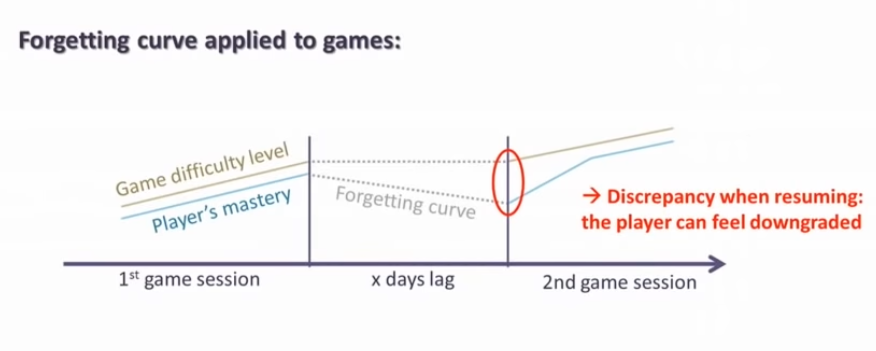Week 3 — Research question
I’m 3 weeks into the final major project module, and sprint 2 starts tomorrow, so I thought I’d get a reflection in before sprint 1 ends.
My research supervisor is Dr. Jeff Howard.
Sprint 1
We’re tasked with envisioning the project, and planning our time over the next few months. More importantly, we have to come up with a research question.
McCombes (2019) suggest that all research questions should be
- Focused on a single problem or issue
- Researchable using primary and/or secondary sources
- Feasible to answer within the timeframe and practical constraints
- Specific enough to answer thoroughly
- Complex enough to develop the answer over the space of a paper or thesis
- Relevant to your field of study and/or society more broadly
Part 1
Firstly, here’s the seed for the game I want to make:
The story starts with a polar bear standing on a sheet of ice out at sea, which is rapidly melting. You have to stay afloat, build a flotilla/armada using flotsam and jetsam, pick up other wayward travellers along the way, and find the answer to why you lost your icy home. (Inspirations: China Mieville’s “The Scar” - both armada/weirdness aspects; climate change).
So, that’s the first part: a game with a wee climate message snuck in there. The last piece of ice is melting, there’s a lot of rubbish in the sea, and you have to survive extreme weather events and such.
Part 2
However, I quickly realised that this will be quite a big game, what with the base-building aspect, underlying narrative (which directs you perhaps to your next icy home), and a second layer of play which involves the overarching strategy and navigation.
I immediately scoped it down to be a survivor game, where you have to survive an onslaught of hordes. The only game mechanic is moving around and dodging enemies, then strategically choosing your next perk when you level up.
I was quite excited by the reduced scope, and immediately started on a prototype, which can be played here: https://opyate.itch.io/polar.
The pivot to a survivor game isn’t completely out of the blue, though. Chris Zukowski writes about an untapped opportunity in the Steam marketplace, which is the high-action, very-fun arcade type game which can be sold for £2, and streamers will say “just buy this”, and folks would skip the dreaded wishlist, because, well, the game is only £2 (2022).
So, that’s the second part: can I make a game very cheaply, that is a lot of fun, and I can convince enough influencers to play it, and get a bunch of players to just buy it?
Note that I’m keeping the polar bear and her sheet of ice. It’s still the last piece of ice in the world, but everyone wants it, and she will defend it until the end.
Part 3
My gaming habits have changed drastically over the years. I have 2 young children, a demanding job, and also doing this masters, so when I do game, it has to be quick and meaningful.
I would, as Celia Hodent describes it, always feel downgraded as a player whenever I revisit a complex game after some time away (2018: 49):

Therefore, I would like my games to be respectful of people’s time.
Part 3.1
An earlier iteration of my idea is something I came up with during a vulnerable period. I might have read somewhere that “no-one dies during a Shigeru Miyamoto game”, but I can’t find a source right now, or it might just not be true. But, I liked the idea of being known for something as wholesome as that.
So, yes, an earlier slogan I can up with was “games that respect your time and soul”, but I don’t know how achievable that is with the new ideas.
The question
Taking the above parts together, I came up with this list of ingredients:
- impact games can make on players w.r.t. climate change
- super cheap but super fun game
- super indie marketing strategy: streaming only?
- a game that is respectful of your time
- single USP: survive the hordes and protect your ice sheet
I guess the question can be something like:
How can a super fun, cheaply-produced game convey a climate change message effectively amongst the time poor arcade-game-playing cohort?
We’re already on the right track, as the question is:
- Focused: the single problem it focuses on is the effective conveyance of a climate change message
- Researchable: playtesting and surveying of a known demographic (time poor arcade game players)
- Feasible: the game has a very small scope, and can be quickly made
- Specific: the issue is climate change, and the demographic is time poor arcade game players
- Complex: the climate change message can be quite complex, and the player can be affected on many levels, and even be mobilised to effect change in their own lives
- Relevant: the artefact is a game (I’m a gamedev), and the issue is climate change (arguably the most important issue of the time)
Bibliography
- HODENT, Celia. 2018. The Gamer’s Brain: How Neuroscience and UX Can Impact Video Game Design. Boca Raton, FL: CRC Press.
- MCCOMBES, Shona. 2019. “Developing Strong Research Questions.” Scribbr. Available at: https://www.scribbr.com/research-process/research-questions/ [accessed 8 Feb 2022].
- ZUKOWSKI, Chris. 2022. “Vampire Survivors Success: An Opportunity in the Steam Marketplace – How To Market A Game.” Available at: https://howtomarketagame.com/2022/01/31/vampire-survivors-success-an-opportunity-in-the-steam-marketplace/ [accessed 13 Feb 2022].
This post is part of my critical reflective journal and was written during week 3 of the module final major project.
Unlabelled images are Copyright 2020 Juan M Uys, and are for decorative purposes only.